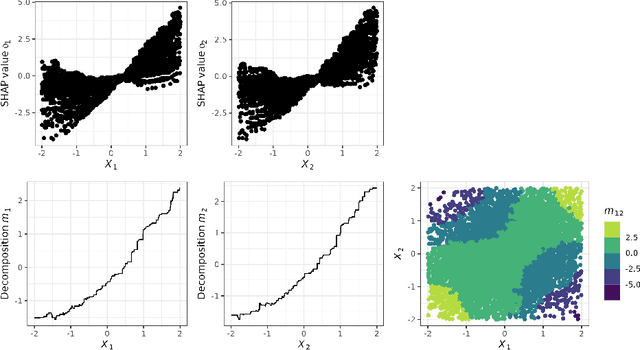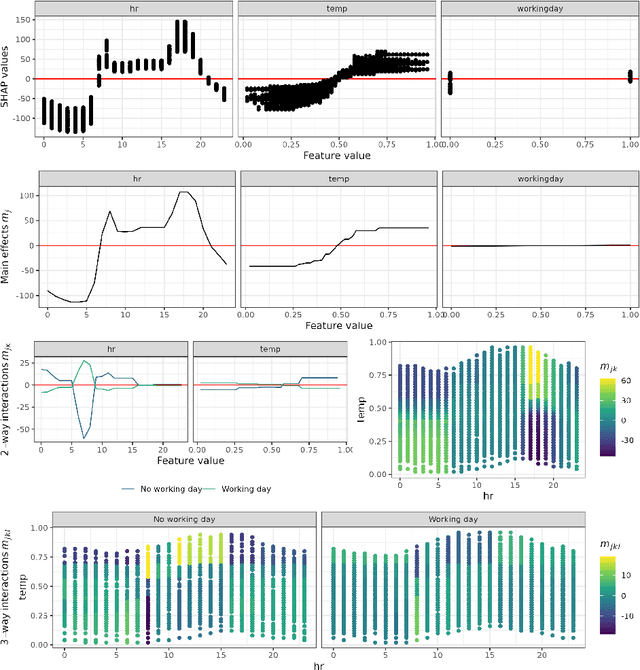Unifying local and global model explanations by functional decomposition of low dimensional structures
Paper and Code
Aug 12, 2022



We consider a global explanation of a regression or classification function by decomposing it into the sum of main components and interaction components of arbitrary order. When adding an identification constraint that is motivated by a causal interpretation, we find q-interaction SHAP to be the unique solution to that constraint. Here, q denotes the highest order of interaction present in the decomposition. Our result provides a new perspective on SHAP values with various practical and theoretical implications: If SHAP values are decomposed into main and all interaction effects, they provide a global explanation with causal interpretation. In principle, the decomposition can be applied to any machine learning model. However, since the number of possible interactions grows exponentially with the number of features, exact calculation is only feasible for methods that fit low dimensional structures or ensembles of those. We provide an algorithm and efficient implementation for gradient boosted trees (xgboost and random planted forests that calculates this decomposition. Conducted experiments suggest that our method provides meaningful explanations and reveals interactions of higher orders. We also investigate further potential of our new insights by utilizing the global explanation for motivating a new measure of feature importance, and for reducing direct and indirect bias by post-hoc component removal.
 Add to Chrome
Add to Chrome Add to Firefox
Add to Firefox Add to Edge
Add to Edge